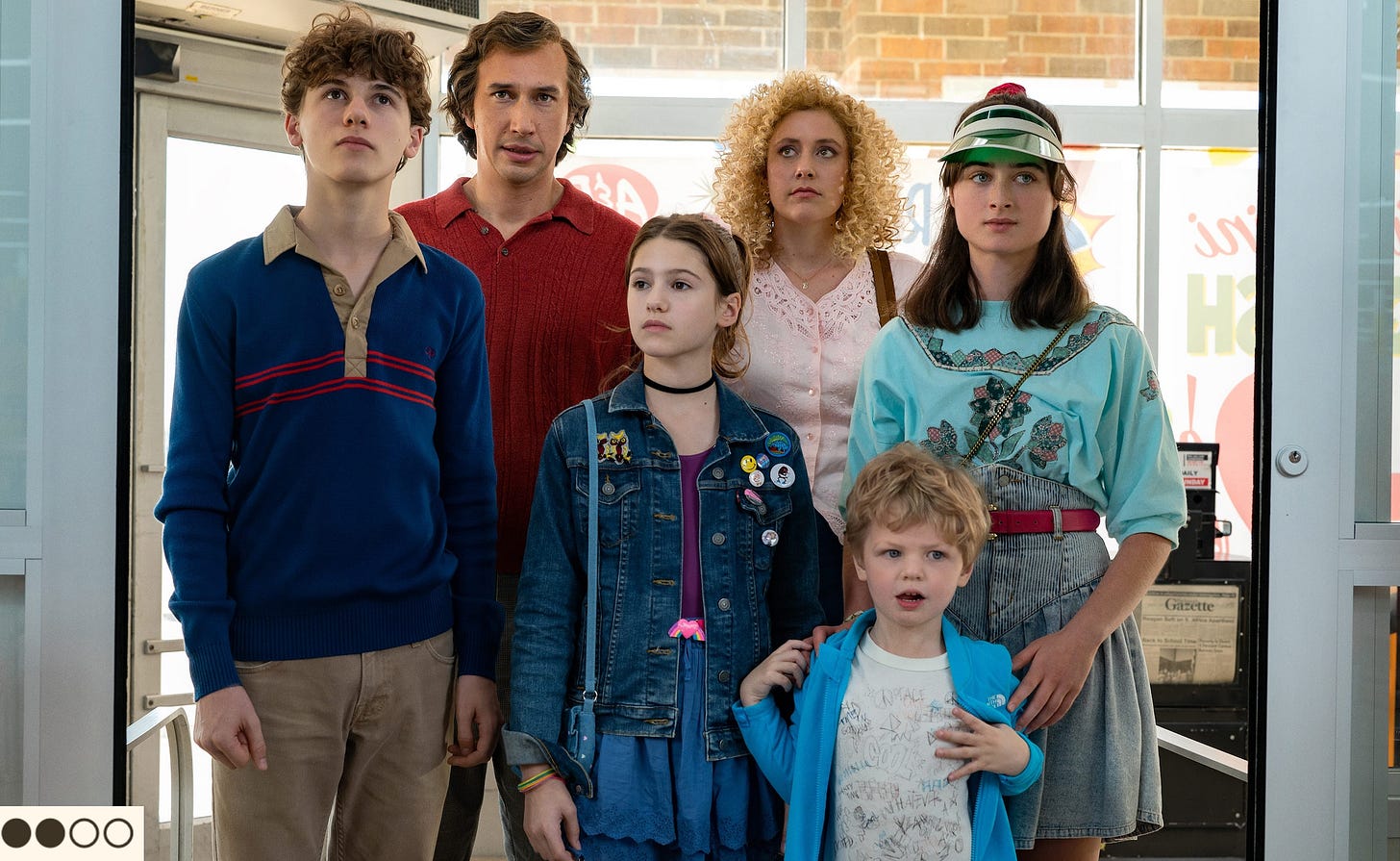The impulse, when writing about White Noise, is to merely quote some of its most memorable passages (of which there are many). So, to be self-indulgent but also to make a point, I’ll start by doing just that:
“All plots tend to move deathward. This is the nature of plots.”
“It was the time of year, the time of day, for a small insistent sadness to pass into the texture of things. Dusk, silence, iron chill. Something lonely in the bone.”
“The power of the dead is that we think they see us all the time. The dead have a presence. Is there a level of energy composed solely of the dead? They are also in the ground, of course, asleep and crumbling. Perhaps we are what they dream.”
“Maybe when we die, the first thing we’ll say is, ‘I know this feeling. I was here before.’”
Having read these excerpts from Don DeLillo’s novel, you may reasonably find yourself asking how one might go about translating them to screen. It’s a fair question, and one that appears to have eluded Noah Baumbach. Baumbach, a filmmaker I admire, has made several movies I enjoy (The Squid and the Whale, Mistress America), and several I do not (The Meyerowitz Stories, Marriage Story). I was nevertheless happy to hear that he was adapting one of my favorite books, at least until I saw who he’d cast in the leading roles: Adam Driver (with whom he’s collaborated several times) and Greta Gerwig (ditto; they’ve also been romantic partners for the last decade). Both are tremendous talents — Gerwig, who directed Lady Bird and Little Women in addition to next year’s Barbie, might be even more impressive behind the camera than she is in front of it — but they’re too young and attractive to play Jack and Babette Gladney.
The married couple have four children between them and are each other’s fourth spouses; neither actor has reached their 40th year, and the costume department’s attempts to dress them down come across as an inside joke. They’re as fixated on their respective mortalities here as they are in the book, albeit without the common, chapter-ending refrain of Who will die first?, but they never feel like the Jack and Babette of the novel. Maybe I’m being precious about my vision of the source material, but I just can’t get past how miscast the two of them are.
More than appearances, the vibe is off from the start. Baumbach’s solution to bringing DeLillo’s dialogue to the screen is too often to have characters speak over one another à la Robert Altman rather than giving each line time to breathe. Even one of the book’s funniest, most famous lines — “Californians invented the concept of life-style. This alone warrants their doom” — is relegated to the background while one of Jack’s colleagues carries on a parallel conversation as Jack speaks to someone else. The material gets away from Baumbach in a way it never does with DeLillo.
I first read White Noise in high school, having been drawn to the cover of my stepdad’s copy; despite being a slow reader, I devoured it in a matter of days and immediately sought out more of DeLillo’s work. (Judging a book by its cover is cool and good, by the way.) It’s still my favorite of his, though Underworld — an imposing tome of 827 pages that covers pretty much the entire second half of the 20th century — comes close. I’ve always subscribed to Stanley Kubrick’s belief that “if it can be written, or thought, it can be filmed,” albeit with a caveat: It can’t always be filmed well.






Uh oh